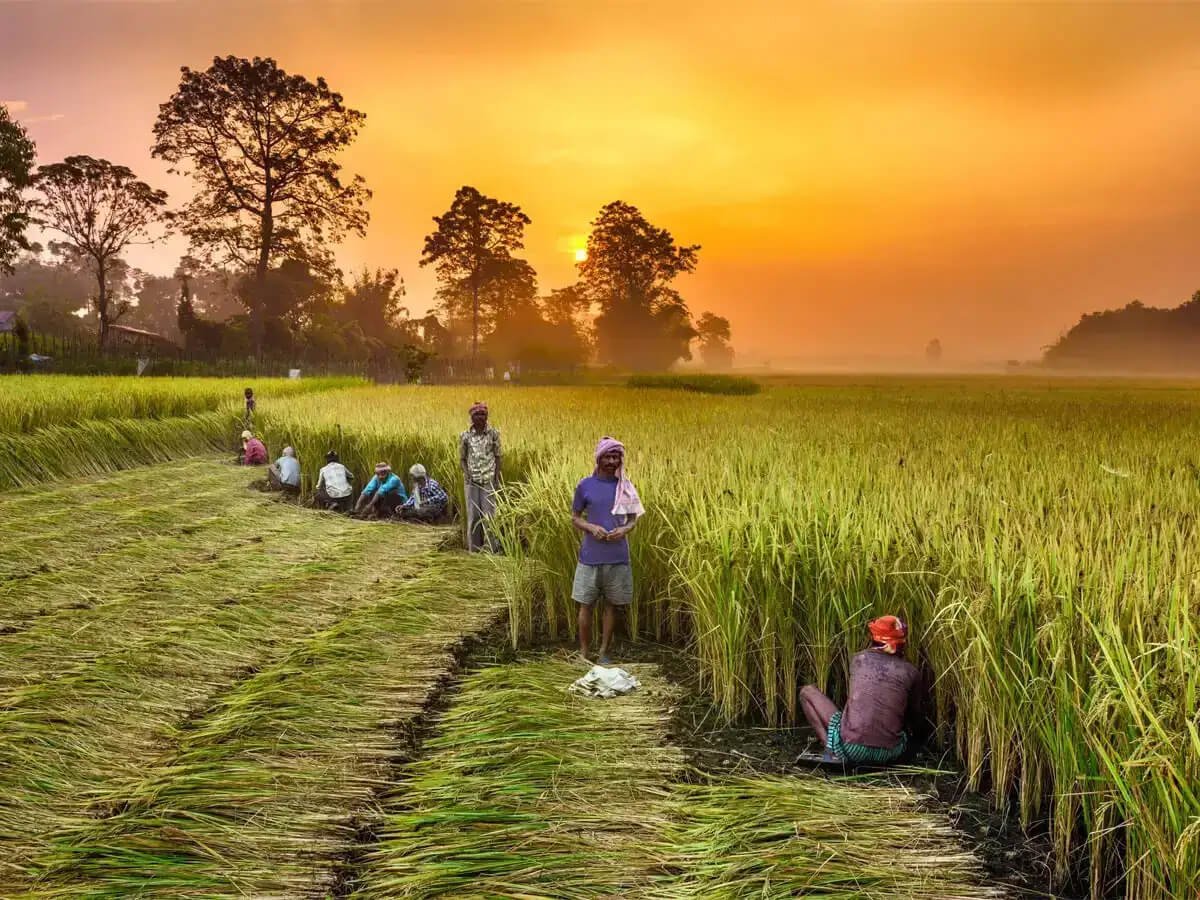
Consultancy
Result-driven, and easy-to-implement consultation services for obtaining the ORGANIC certificate.

Training
With a team of highly qualified consultants and trainers possessing extensive industry experience.

Inspection
Yearly on-farm inspections include a detailed physical tour, thorough record review, and personal interview.

Documentation
Extensive paperwork, detailing farm history and current set-up, and usually including results of soil and water tests.

The Leader Behind an Admirable Company
Mr. Rahulbhai Mangalbhai Kachhad
Founder Director and CEO
Two decades ago, in India, the concept of organic agriculture seemed bizarre. Self-sufficiency in food grains to feed a billion mouths every day was a national priority for a country with a population of over one billion and a high birth rate. India was able to reach its goals, but the country’s fast economic growth led to many chemical abuses that hurt the soil, ecology, and environment. Toxic cocktails and chemicals that cause cancer slowly made their way into the food chain.
Organic Farming Certification In India
Organic farming is gaining popularity in India for a variety of reasons. First, it is practiced in areas by farmers as a traditional way of life because farming inputs are very low or because they cannot afford high-input farming. Second, it’s being used by farmers who know the bad things about traditional farming and have had low returns on their investments. Farmers who have analyzed the emerging market trend and premiums associated with organic products have also considered this farming technique. The third group of farmers is certified and garners market interest. while the remaining two lack certification.
Since 2003–2004, the area under organic farming has increased by a factor of 29. The country has created a certification process that is known around the world to make sure the quality of organic food that is exported, imported, or used in the country. The National Program for Organic Production (NPOP) outlines the regulatory framework for NPOP. It has created separate acts for export and domestic use. The National Program on Organic Production is told about the export quality specifications (FTDR) by the Foreign Trade Development and Regulation Act. So, an organic that has been certified by an agency in India can now be sent to Europe, Sweden, and the U.S. without needing extra certification. The Agriculture Produce Grading, Marking, and Certification Act notifies the NPOP to examine the requirements for domestic use (APGMCA). There are 20 accredited certification agencies in India.

PROCESS OF ORGANIC FARMING CERTIFICATION

-
The farmer must obtain an application from an accredited organic certification agency and return it duly completed.
-
The certification agency provides the farmer with a document containing the standards and procedures to be adhered to.
-
The fee is established by the organic certification organization.
-
The farmer's documents are audited.
-
A field is inspected by an internal quality manager and an external inspector, and documentation is created.
-
Again, inspections and audits are conducted to ensure compliance with the NPOP's standards.
-
The field inspector generates reports.
-
The entire report is examined by a group (reviewing body).
-
Final certification decisions are made.
The agency issuing the application for organic certification requires the following information from the farmers: Therefore, it is of the utmost importance that farmers have this data set prepared prior to submitting the application:
- Plan for organic production.
- Details regarding the identity and address of the applicant.
- Include the name, outcome, and a copy of any previously applied for organic certifications, as well as the reason for applying.
- Along with the application, registration fees, one-time inspection fees, and one-time travel expenses must be paid.
- In the application, any pertinent additional information that specifies compliance with the standards may be included.
The farmland inspection is the most important aspect of the organic certification process. The inspection procedure may be summed up as follows:
- The external inspector visits the field and conducts a review of the facilities, records, and finances.
- In accordance with the agency's input/output norms, an estimate of the farm's output is formulated, and calculations are performed.
- The entire system of production is evaluated, and the farmer or applicant is interviewed.
- Risk posed by neighboring farms is evaluated.
- The soil test reports are analyzed, and the farm's practices are thoroughly inspected.
- Regarding the use of genetically modified and other agricultural inputs, a thorough inspection is conducted.
During an inspection, authorities may examine soil, water, seeds, plant tissue for the presence of prohibited substances; if they have any doubts, they may also send samples for analysis. These samples are analyzed in the National Accreditation Board for Testing and Calibration Laboratories (NABL)-accredited ISO laboratories. The applicant/farmer is responsible for paying for the sample test. After the inspection, the entire report is sent to the evaluator, who assigns a score within a specified time frame. The applicant must provide a suitable explanation for any information requested by the evaluator during the evaluation process.